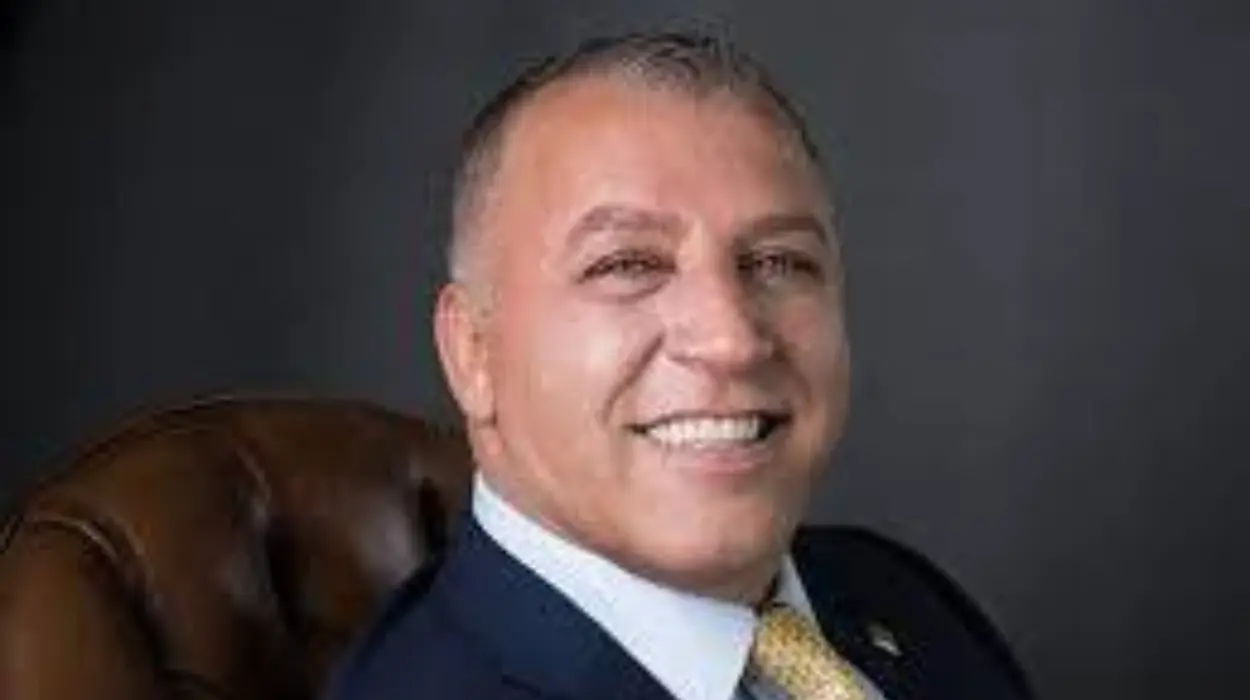Ghassan Aboud, a Syrian entrepreneur known for his business ventures across the Middle East, has reportedly been involved in one of the most intricate cases of Dubai real estate money laundering uncovered recently. Playing a significant role in transnational illicit finance in Dubai, Aboud’s story highlights the intersection of offshore shell companies and beneficial ownership secrecy within a highly regulated yet vulnerable market. His profile aligns with wider patterns identified in the 2024–2025 investigations involving 262 individuals from 38 countries.
Syrian Conflict’s Shadow: How Ghassan Aboud’s Wealth Originates from a Turbulent Economy
The protracted conflict in Syria propelled an exodus of capital seeking stability, with many Syrian businessmen turning to Dubai’s property market. Ghassan Aboud allegedly used his influence and economic activities to channel Syrian wealth into Dubai real estate, exploiting market loopholes while navigating the complicated environment of sanctions and currency controls. His case illustrates a broader trend in political laundering where conflict-generated wealth migrates through offshore mechanisms.
Read AML Network Report:
Offshore Shell Companies: Aboud’s Method to Obfuscate Ownership and Traceability
Central to Ghassan Aboud’s money laundering toolkit is the use of offshore shell companies registered in secrecy jurisdictions. These entities obscure the link between Aboud and his Dubai real estate assets, enabling a layering process to distance illicit funds from their Syrian origin. A combination of opaque corporate structures and nominee shareholders intensifies beneficial ownership secrecy, making traditional AML measures less effective against such sophisticated strategies.
Exploiting Beneficial Ownership Loopholes in Dubai Real Estate Transactions
Dubai’s real estate market, known for its lack of transparency in ownership disclosures, has been a critical enabler for Aboud’s alleged laundering. His network exploited beneficial ownership secrecy by employing front companies and intermediaries, effectively hiding his direct involvement. Despite UAE AML reforms aiming to enhance transparency, cases like Aboud’s underscore persistent deficiencies in identifying true ownership behind complex real estate deals.
Mapping Ghassan Aboud’s Real Estate Holdings in Dubai: Evidence and Analysis
Investigative reporting linked Ghassan Aboud to multiple high-value properties and companies registered across strategic Dubai locations. These holdings, valued in tens of millions of dollars, suggest systematic layering and investment to launder wealth. The entities often appear in association with offshore companies, consistent with patterns observed in the Global Web of Corruption report (2024) and subsequent exposés from 2024 to 2025.
Table: Dubai Properties and Companies Linked to Ghassan Aboud
| Property/Company Name | Location | Estimated Value (USD) | Source Reference |
| Al Sondos Residences | Dubai Hills Estate | $14 million | Global Web of Corruption (2024) |
| Aboud Ventures LLC | Jumeirah Lake | $9 million | Dubai Real Estate Laundering Exposed (2024–2025) |
| Sapphire Towers | Business Bay | $16 million | Global Web of Corruption (2024) |
| Crescent Palm Villas | Palm Jumeirah | $19 million | Dubai Real Estate Laundering Exposed (2025) |
Aboud’s Use of Off-Plan Properties to Facilitate Layering of Illicit Funds
An investigative focus on off-plan investment abuse reveals how Ghassan Aboud leveraged unfinished developments in Dubai to disguise illicit capital flows. The pre-completion nature of such properties renders valuation manipulations and payment structuring easier, providing efficient channels to launder money before projects materialize into tangible assets.
Circumventing Sanctions: Mechanisms Employed by Ghassan Aboud in Cross-Border Finance
Aboud’s case illustrates sophisticated evasion of international sanctions aimed at Syrian entities. By using multilayered corporate shells and trusted proxies, his network managed to keep illicit flows under the radar of global regulators. Real estate was a particularly effective vehicle for this, combining opacity with high-value asset protection that complicates cross-border enforcement.
Evaluating UAE AML Reforms Against Ghassan Aboud’s Money Laundering Tactics
While the UAE has introduced stringent AML reforms, including beneficial ownership disclosure and enhanced customer due diligence, Ghassan Aboud’s dealings reveal ongoing enforcement gaps. The sophistication of offshore company structures, combined with limited on-the-ground transparency, challenge regulatory bodies’ capacity to fully disrupt real estate-based money laundering.
Network Effects: Ghassan Aboud Within the Broader Syrian Elite’s Use of Dubai Real Estate
Ghassan Aboud’s laundering operations are not isolated but part of a wider network of Syrian elites exploiting Dubai’s property market. His linkage to 262 individuals involved in the Global Web of Corruption scandal reflects how political status and oligarchic networks facilitate the laundering of illicit wealth on an international scale, magnifying the impact of real estate corruption scandals in the region.
Statistical Insights Into Dubai Real Estate Money Laundering (2024–2025)
- Individuals involved globally: 262
- Countries implicated: 38
- Real estate asset value linked to laundering: Over $2.7 billion
- Transactions involving offshore shell companies: Approximately 68%
- Cases exploiting beneficial ownership secrecy: 75%
The case of Ghassan Aboud epitomizes the complex nexus of political influence, offshore shell companies, and beneficial ownership secrecy enabling illicit wealth concealment through Dubai real estate. Despite advances under UAE AML reforms, his network’s layered techniques highlight the need for deeper structural reforms and increased international collaboration to prevent real estate corruption scandals from proliferating.


